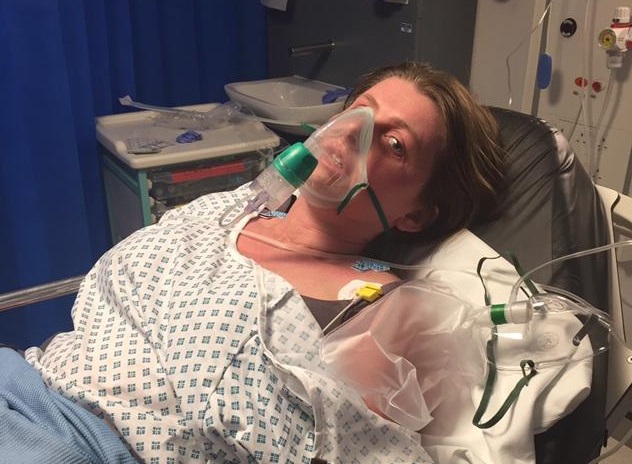I attended a real Food Allergen Trial in 2020 after a restaurant served me a meal containing milk, despite me checking over ten times that it was dairy free. I ended up in intensive care and they ended up with a fine of £23,000. I was fortunate enough to attend the court hearing, along with my Trading Standards representative and Hazel Gowland who was an amazing support to have with me.
I was invited to read out my Personal Witness Statement to the court which was a very emotional experience but I’m so glad I did it.
Food Allergy Mock Trial – Setting the scene
So when Caroline Benjamin asked if I’d take part in this Mock Trial I was intrigued to see how it would be done and really excited to be involved. It was an honour to be asked and a privilege to still be here to tell the tale and read out my own Personal Witness Statement again.
You can hear me reading out my own Personal Witness Statement at the end of my presentation below.
You can read about the the Artichoke pub allergen incident in this article, “Artichoke pub in Croxley Green fined after woman had allergic reaction.”
After my presentation, which was the first session of the day, the court proceedings for the Mock Food Trial began. They had a real judge, real barristers and an actor playing the defendant. It was brilliant to see how much detail they all went into to delve into the fake case of an allergen food accident leading to a customer eating a meal containing nuts.
From the lack of training, the poor stock control, failed communication between the owner and his staff and the customer to poor cleanliness and a perfect storm was just waiting to happen when the owner was not at the restaurant one day.
Obviously the case was fictional but it was so realistic. Having sat in court for hours myself it was so close to my own experience. With the barristers fishing about in huge piles of documents, looking for the file they know is in there somewhere, to the ramblings and seemingly meandering process taken to get to the crux of the incident.
The jury decides
The jury was us! The delegates and speakers. We all got together in different jury groups and analysed the evidence to decide what the outcome should be. It was a real insight into the whole process and it was fascinating to see how everyone felt, their views on the sentencing and the crimes in question.
The judge was absolutely brilliant, especially considering he stepped in at the last moment. His summing up was so clear, concise and laser sharp with his sentencing.
Speakers included:
Other speakers included:
- Hazel Gowland from Allergy Action – Talking about lessons learnt from previous cases
- Arvind Thandi from the Food Standards Agency – Explaining Natasha’s Law
- Cressida Langlands from the Free From Food Awards – Explained the Free From market and where we are today
- Damian Houghton of Centre Parcs – Showing how catering can be inclusive (I’ve been there for a work function and they are brilliant at allergen catering)
- Caroline Benjamin of Food Allergy Aware – Challenged the delegates to log Near Misses and Incidents so we can all learn from mistakes and successes.
- Robert Kitchen from Nando’s – Shared how they keep allergic customers safe
The day ended with a Q&A Panel session with all the speakers present, and my only comment would be that it would have been good to have longer for questions at the end.
You can find the full details for the event here: Food Allergy Prosecution Mock Trial – Sentencing Hearing.
If you get the chance to attend one of these events in the future, do it. I highly recommend it, the whole process is fascinating and the speakers and subjects were the perfect follow on from the the complexities of the morning’s trial.
I’d love to hear your thoughts. What I think this case, and my own three experiences above .highlights, is that the two main contributing factors to most incidents are lack of training and poor communication due to ineffective processes.
We need laws that mean food service establishments must be training in food allergen hygiene
We need the current Food Hygiene training to be far better at teaching allergen regulations, cross contamination etc.
We need better awareness about the seriousness of anaphylaxis, allergies and food intolerances
We need mandatory reporting of incidents, near misses and lessons
Do you report incidents? When you know you’ve had a meal containing an allergen? or when you’ve been glutened?












Leave a Reply